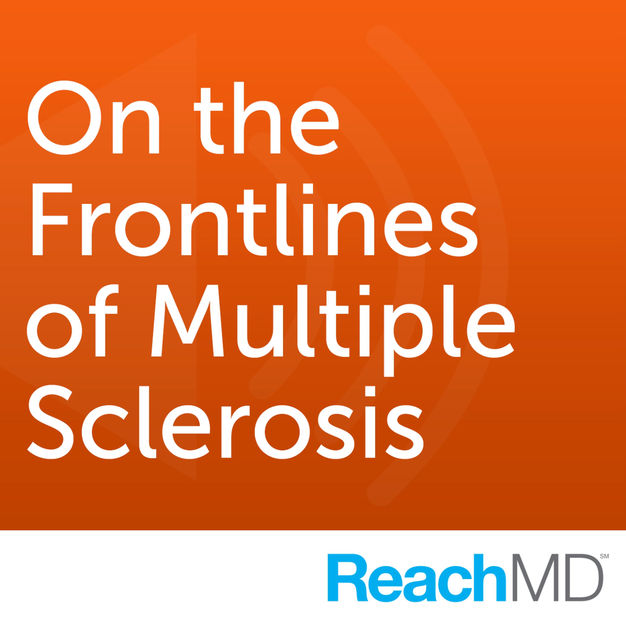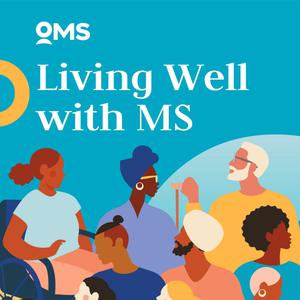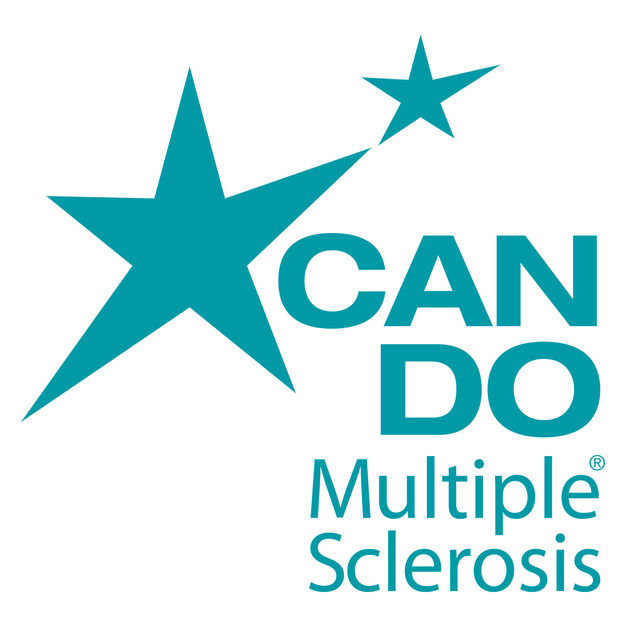
MS Living Well: Key Info from Multiple Sclerosis Experts
Barry Singer, MD
- 35 minutes 53 secondsUncommon Multiple Sclerosis Symptoms
Awareness of the more uncommon multiple sclerosis symptoms can lead to an earlier diagnosis and appropriate treatment. For instance, experiencing electrical shock sensations when bending the neck forward, known as Lhermitte’s sign, may indicate an attack on the cervical spinal cord. Likewise, excruciating bolts of pain across either side of the face, called trigeminal neuralgia, can be caused by a MS relapse. The MS hug, an unfriendly, squeezing sensation around the torso, can respond to muscle relaxants and nerve pain medications. Some MS symptoms, like tingling in legs, only surface when exercising or overheated (Uhthoff’s phenomenon).
Vertigo, a spinning sensation, can be a sign of MS, especially when lasting days and accompanied by other symptoms like gait imbalance, facial numbness and double vision. Brainstem attacks may also lead to swallowing issues and shaky vision. While MS bladder issues are commonly addressed, bowel problems, including constipation, urgency, incontinence and trouble evacuating, should not be overlooked. Overcoming stigma is essential to treat sexual dysfunction.
Barry Singer MD, Director of The MS Center for Innovations in Care, interviews:
Mary Ann Picone MD, Medical Director, MS Center at Holy Name Medical Center, Teaneck, New Jersey
Bruce Hughes MD, Director of the Ruan Multiple Sclerosis Center, MercyOne, Des Moines, Iowa
7 May 2024, 8:00 am - 39 minutes 1 secondHarnessing AI: Transforming MS Care
Prepare to be intrigued by the groundbreaking intersection of artificial intelligence (AI) and multiple sclerosis care! By combing through extensive databases, including genetic information and real patient records, AI can forecast with remarkable accuracy the likelihood of MS onset. In the near future, AI could even serve as a guiding light for clinicians and MS patients in selecting the most suitable disease-modifying therapies, armed with predictive algorithms tailored for each individual.
But the marvels of AI don’t stop there. In a recent study, AI detected an astonishing 93% of new and enlarging T2 brain lesions in MRI scans, far surpassing the 58% accuracy rate of routine radiology reads. Artificial intelligence is also making waves in drug development and early clinical trial design, accelerating the quest for innovative therapies to combat MS.
Barry Singer MD, Director of The MS Center for Innovations in Care, interviews:
Tal Arbel PhD, Professor, Department of Electrical and Computer Engineering, McGill University, Montreal
Michael Barnett MBBS (Hons) FRACP PhD, Professor in Neurology, University of Sydney and Director of the MS Society Clinic & MS Clinical Trials Unit at the Brain and Mind Centre
9 April 2024, 8:00 am - 42 minutes 16 secondsNavigating MS with Other Medical Conditions
Living with multiple sclerosis isn't just about managing the condition itself, but often involves navigating a myriad of additional health concerns known as comorbidities. Individuals with MS face a higher risk of experiencing new relapses when dealing with comorbidities like high cholesterol or depression. Furthermore, autoimmune diseases such as psoriasis and inflammatory bowel diseases like Crohn’s disease and ulcerative colitis are more prevalent among those with MS. There is even a heightened risk of bladder cancer.
Interaction of MS treatments and other common conditions like high blood pressure (hypertension), high cholesterol and diabetes are addressed. Experts share how immunotherapies used for other autoimmune diseases may benefit or actually worsen MS disease activity. Crucial information is shared on cancer treatment concerns in individuals with MS. Adopting healthy lifestyle behaviors is essential to minimize the development of these comorbidities.
Barry Singer MD, Director of The MS Center for Innovations in Care, interviews:
Ruth Ann Marrie MD PhD, Professor of Medicine and Community Health Sciences at University of Manitoba, Canada
Mark Cascione, MS neurologist, South Tampa MS Center, USA.
19 March 2024, 8:00 am - 38 minutes 24 secondsHormones and Multiple Sclerosis
Sex hormones, such as estrogens and testosterone, affect each individual's journey living with multiple sclerosis. While both genders face equal MS risk before puberty and after menopause, women experience up to three times higher risk during their reproductive years. Pregnancy generally brings less relapses, potentially attributed to high estriol levels. However, navigating treatment decisions well while trying to conceive and after delivery requires finesse and expertise. Equip yourself with the latest women's health info regarding MS, covering topics from birth control and fertility treatments to menopause and osteoporosis.
Testosterone has important anti-inflammatory and neuroprotective benefits in multiple sclerosis. Nevertheless, men are at higher risk for disability progression then women. Declining testosterone levels over time (called andropause) and Y chromosome genes may tilt the scales towards disability. Listen to current testosterone research including potential remyelination benefits.
Barry Singer MD, Director of The MS Center for Innovations in Care, interviews:
Maria Houtchens MD, founding director of the Women’s Health Program at the Brigham MS Center and Associate Professor of Harvard Medical School in Boston, USA
Jorge Correale MD, Head of Neuroimmunology and Demyelinating Diseases at the Dr. Raúl Carrea Institute of Neurological Research in Buenos Aires, Argentina
27 February 2024, 9:00 am - 39 minutes 48 secondsRevolutionizing Multiple Sclerosis Care: B-Cell Therapy
In a paradigm-shifting discovery, researchers uncovered that B cells, not T cells, wield significant influence on orchestrating neurological damage in MS. Join UCSF Professor Dr. Stephen Hauser as he shares the remarkable odyssey from hurdles to triumphs of developing B cell monoclonal antibody treatment for multiple sclerosis. Disease impact, safety concerns and personalization of MS treatment of these medications including Ocrevus (ocrelizumab), Kesimpta (ofatumumab) and Briumvi (ublituximab) are highlighted.
Brain-penetrant BTK inhibitor therapies that may offer more direct targeting of B cells within the central nervous system, potentially unlocking new possibilities in treating progressive forms of MS. Professor Heinz Wiendl explores the connection between Epstein-Barr virus infection of B cells and the initiation and progression of MS including trials investigating strategies to target EBV-infected B cells. Pioneering approaches like CAR-T therapy and brain shuttle techniques provide optimism for the next generation of MS treatment.
Barry Singer MD, Director of The MS Center for Innovations in Care, interviews:
Stephen Hauser MD, Professor of Neurology at the University of California, San Francisco (UCSF) and Director of the UCSF Weill Institute for Neurosciences
Heinz Wiendl MD, Professor of Neurology and Chair of the Department of Neurology at the University Hospital of Muenster in Germany
30 January 2024, 9:00 am - 38 minutes 12 secondsRecipe for Resilience: The Blind Cook and NMOSD
Christine Ha, an award-winning blind chef and restauranteur, shares her experience grappling with neuromyelitis optica spectrum disorder (NMOSD). Facing relapses with the inability to walk and feed herself that challenged her independence, she leaned on the support from family and friends. As she lost her sight due to optic neuritis in both eyes, Ms. Ha had to embark on a journey of rediscovery in the kitchen, starting with the fundamentals. Winning MasterChef Season 3 marked a turning point, propelling her culinary career forward despite the obstacles posed by her disability.
NMOSD is an autoimmune disease in which an antibody attacks water channels on astrocyte cells in the optic nerves, spinal cord and sometimes the brain. Attacks or relapses can be devastating and incomplete recovery from attacks is typical. Like Ms. Ha, some people living with the condition can be misdiagnosed with multiple sclerosis. A blood test for the aquaporin-4 antibody is key to getting diagnosed correctly early. Since 2019, highly effective treatment options have been FDA-approved that reduce relapses by 77-94%.
Barry Singer MD, Director of The MS Center for Innovations in Care, interviews:
Christine Ha, "The Blind Cook". Her first cookbook, Recipes from My Home Kitchen, was a New York Times best-seller. Ms. Ha’s first restaurant in Houston, The Blind Goat, was named a semi-finalist for 2020 Best New Restaurant in America by the James Beard Foundation. She was also named a James Beard finalist for Best Chef in Texas in 2022.
Michael Levy MD PhD, Associate Professor at Harvard Medical School and Director of the Neuroimmunology Clinic and Research Laboratory
19 December 2023, 9:00 am - 37 minutes 40 secondsMaking Strides: Enhancing MS Mobility
Wherever you are on your multiple sclerosis journey, there are many reasons to be optimistic about the future of mobility. Our experts, both holding doctorates in physical therapy, offer invaluable guidance on enhancing your walking abilities through targeted exercise and specialized therapy. Learn how to reduce the risk of falls, alleviate spasticity, and build endurance for a more active life.
Cutting-edge technology, from wearable electrical stimulation devices to incredible exoskeletons, are revolutionizing mobility for those living with MS. Discover how neuromodulation, in conjunction with physical therapy, can pave the way for new neural pathways. Virtual reality and anti-gravity treadmills are redefining therapy options for those people with advanced MS. Moreover, gain insights into conquering travel challenges, empowering individuals living with multiple sclerosis to venture out into the world.
Barry Singer MD, Director of The MS Innovations in Care, interviews Gretchen Hawley DPT, The MSing Link and Annie Morrow DPT, Director of the Stephen A. Orthwein Center.
10 October 2023, 6:00 am - 35 minutes 18 secondsMS Care Equity: Empowering Underserved Communities
Health equity represents the pursuit of the highest level of well-being for all individuals, ensuring that every person, regardless of their background, enjoys a fair and just opportunity to achieve their optimal health.
Disparities exist within the multiple sclerosis community. It's a stark reality that Black individuals with MS face an increased risk of disability, while Black women are disproportionately affected by this condition compared to their White counterparts based on a Kaiser study. Additionally, Hispanic patients often contend with an earlier onset of MS, occurring 3-5 years before it typically manifests in White individuals. Both social determinants of health and genetic factors play significant roles in shaping outcomes for these communities. Strategies to enhance MS care in underserved communities include increasing the availability of healthcare providers, providing crucial translation services, and addressing biases both within the healthcare team and the communities they serve.
Rural MS patients experience unique challenges, often encountering barriers in accessing specialized care. Connecting lower-income patients to vital resources, including medications and MRI scans, is essential. Innovative approaches like telehealth and improved transportation options can bridge the gap for those with higher levels of disability. As an MS community, we can all advocate to ensure that everyone regardless of their circumstances receives the comprehensive care that they deserve.
Barrry Singer MD, Director of The MS Center for Innovations in Care, interviews:
Lilyana Amezcua MD, Associate Professor of Neurology, University of Southern California. She spearheaded the collaborative research consortium Alliance for Research in Hispanic MS (ARHMS) and serves as principal investigator. Dr. Amezcua serves on numerous national and international committees including as an elected member to the NMSS National Medical Advisory Committee and NIH NINDS Health Disparities Strategic Steering Committee.
Jacqueline Rosenthal MD, MS neurologist at the Shepherd Center's Andrew C. Carlos Multiple Sclerosis Institute in Atlanta. Dr. Rosenthal completed her medical degree from Morehouse School of Medicine in Atlanta, neurology residency at Madigan Army Medical Center in Tacoma and neuroimmunology fellowship at Emory University School of Medicine.
12 September 2023, 8:00 am - 39 minutes 20 secondsBridging MS: Connecting You to Resources
Navigating life with multiple sclerosis? Gain valuable insights from MS insiders! Stanford nurse practitioner Jong-Mi Lee reveals strategies for accessing MS centers and maximizing available resources. Acquire valuable tips on various topics including overcoming mobility challenges, managing workplace issues, and receiving quality care despite insurance obstacles.
Many inspiring and resilient individuals living with MS actively share their perspectives on social media platforms within the MS community. Dominic Shadbolt, a renowned UK MS patient advocate and founder of The MS Guide, highlights his personal favorites and provides essential advice for sifting through the wealth of online information.
Access reliable knowledge and support from global non-profit organizations. Dr. Jaime Imitola, esteemed MS neurologist and Associate Professor of Neurology at the University of Connecticut, offers practical approaches to surmount financial barriers and attain crucial MS treatments.
Podcast Host: Barry Singer MD, Director of The MS Center for Innovations in Care, Missouri Baptist Medical Center, St. Louis, USA
22 August 2023, 8:00 am - 33 minutes 33 secondsMRI in MS: From Pixels to Progress
Step into the powerful realm of MRI imaging, providing us with an unparalleled view of multiple sclerosis. Discover how acute inflammation becomes vivid with contrast, and how various MRI sequences unveil the past battles fought within your brain and spinal cord. We'll explore advances in techniques, revealing brain shrinkage, gray matter disease and myelin repair. Understand the impact of MS on brain processing efficiency during rest and specific tasks through functional MRI imaging. Crucial questions regarding where and how often to get MRI scans are addressed. Latest guidance on avoiding contrast for routine MRI monitoring in MS shared.
Barry Singer MD, Director of The MS Center for Innovations in Care, interviews:
Christina Azevedo MD, Assistant Professor of Clinical Neurology at the University of Southern California
Robert Zivandinov MD, PhD, Director of the Buffalo Neuroimaging Analysis Center & Professor of Neurology at Jacobs School of Medicine and Biomedical Sciences at the University at Buffalo, State University of New York.
1 August 2023, 8:00 am - 38 minutes 2 secondsInside MS: Navigating Inflammation
Dive into a deeper understanding of the role of inflammation in causing injury to the brain and spinal cord in multiple sclerosis. It’s a journey marked by ups and downs, where the adaptive immune system composed of lymphocytes (T and B cells) attack myelin and the innate immune system clears damaged myelin. An immune cell called microglia can create smoldering inflammation in MS that poses a threat of progressive disability.
Explore the arsenal of MS treatment strategies developed over the past 3 decades to either alter or suppress the immune system to reduce inflammation. Triumphs and limitations of our current MS therapies shared. Antioxidant research, diet and new therapeutics tackling smoldering inflammation bring newfound hope.
Barry Singer MD, Director of The MS Center for Innovations in Care, interviews:
Klaus Schemierer MB BS, PhD, FRCP, Professor of Neurology at the Blizard Institute, Queen Mary University of London, and Consultant Neurologist at The Royal London Hospital, Barts Health NHS Trust.
Michael Kornberg MD, PhD, Assistant Professor of Neurology at John Hopkins.
11 July 2023, 8:00 am - More Episodes? Get the App
Your feedback is valuable to us. Should you encounter any bugs, glitches, lack of functionality or other problems, please email us on [email protected] or join Moon.FM Telegram Group where you can talk directly to the dev team who are happy to answer any queries.
 On the Frontlines of Multiple Sclerosis
On the Frontlines of Multiple Sclerosis
 RealTalk MS
RealTalk MS
 Living Well with Multiple Sclerosis
Living Well with Multiple Sclerosis
 Can Do MS Podcast
Can Do MS Podcast
 MSAA Podcast
MSAA Podcast